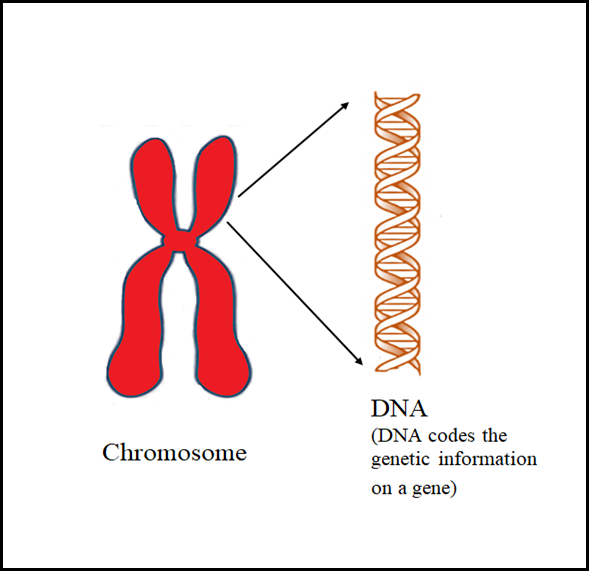Question
Question: The Hereditary vehicle is (a) Chromosome (b) Centromere (c) Nucleus (d) Nucleolus...
The Hereditary vehicle is
(a) Chromosome
(b) Centromere
(c) Nucleus
(d) Nucleolus
Solution
These are made up of protein and a single molecule of deoxyribonucleic acid (DNA). They are passed from parents to offspring, DNA contains the specific instructions that make each type of living creature unique.
Complete Step by Step Answer:
Chromosomes are the threadlike structure that is present within the nucleus of a cell (plant cell and animal cell). They are made up of deoxyribonucleic acid or DNA and basic proteins called histones.
Chromosomes enclose genes (sequence of DNA) which carries the hereditary characteristic or information from the parents to the offsprings. Therefore, they are called hereditary vehicles.

Chromosomes are formed of DNA and proteins. They are not visible in the cell nucleus even under a microscope when the cell is not dividing. During cell division, the DNA found tightly coiled many times around a protein called histones. Before the initiation of cell division, they undergo further condensation and form chromatids. The chromatids undergo replication and form copies of each chromatid, and they remain attached with the help of centromere. Each chromosome has a constriction point known as centromere which divides the chromosome into two parts or arms-a q arm and a p arm. The terminal end of the arm is known as telomeres. Telomeres are significant in that they form the termini of chromosomes, protect chromosomes from nuclease activity, and maintain the stability of chromosomes.
So, the correct answer is, ‘(a) Chromosomes.’
Note:
- Chromosomes contain genes that carry hereditary characteristics of a specific person i.e shortness, tallness, brown eye color, etc. Chromosomes are called hereditary vehicles because they're inherited to the offspring from their parents and to their offspring from them.
- A chromosome contains hundreds to thousands of genes. Every normal human cell contains 23 pairs of chromosomes, for a complete 46 chromosomes. A trait is any gene- determined characteristic and is usually determined by quite one gene.
